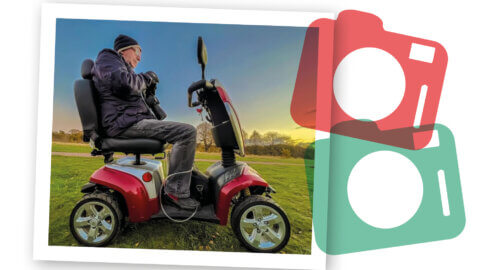Making life a little easier with your medicines
Concordance – what’s it all about? Senior pharmacist Neil Hamilton explains the latest techniques to help PH patients take their prescribed medication.
Concordance is defined in one of the largest medical dictionaries as being;
The word itself has its roots in Late Middle English: from old French (concordant) and from medieval Latin (concordantia), both meaning ‘being of one mind’.
It is the sense of a shared agreement which explains why the phrase “compliance” has become less popular, as we move away from the idea that Doctors tell patients what to do and patients have no say in their own management. This old way of thinking is commonly being replaced by patients and healthcare professionals agreeing on the best plan. Whilst the teams at the specialist centres have the knowledge and clinical training, nobody knows you like you do, and the best idea on paper may not be realistic for everyone.

With this in mind, one of the most obvious forms of non-concordance is noted when patients fail to take their medicines exactly as prescribed. There is little research data available specific to Pulmonary Hypertension , but in other long-term conditions, concordance has been found as low as 50%. This means that only half of all patients involved in the project took their treatments exactly as prescribed. This seems surprisingly low, and it would be very interesting to understand what the figure is in the UK and even more helpful to find out why it is not close to 100%. I know that the PHA is doing some work on this so watch this space…
The specialist treatments for PH are expensive and whilst paying for this should never be your concern, the NHS would much rather be paying for a treatment that you will take as prescribed rather than one for which your doses are often late or worse still, missed. With this in mind, there are several options available to patients who, for any reason, are serially ‘forgetful’ (as opposed to those who consciously decide to take their medicines different to how it is prescribed).
The specialist treatments for PH are expensive and whilst paying for this should never be your concern, the NHS would much rather be paying for a treatment that you will take as prescribed rather than one for which your doses are often late or worse still, missed.
Despite seemingly obvious advantages to using any of the MDS systems, again there is little evidence written in the literature to support their widespread usage.
Royal Pharmaceutical Society’s guidelines require that healthcare professionals make sure patients understand their treatments in order to manage them safely. This means ensuring patients have enough information and have the mental capacity and the physical capability to take medicines from their original packs wherever possible. This becomes more of a challenge with an aging population with multiple diagnoses and hence increasing numbers of medicines to remember and take correctly. Any compliance aid has resource and time implications, which need to be justified in each case. Whilst it acknowledges the importance of compliance aids, the preferred option is medicines dispensed in their original packs. Not least because these ensure all the patient information leaflets are present.
However, as with any part of the agreed management plan, careful consideration of the best way to take the medicines (usually tablets) is absolutely vital. I suspect that some reading this will realise straight away that one of these compliance aids would be helpful, and some will know just how useful they are already from their own experience.
What I hope is that after reading this, everyone gives an extra thought to how they manage their treatment. If you don’t or can’t take medication as prescribed, the first people to discuss with are your GPs or the team at your PH centre. It is vital that those looking after you know what you’re doing so that you receive the best care and advice. After all, if you are taking more (or less) than your doctors think, your own health might be at risk. Don’t be afraid to tell them as there will nearly always be a solution that works for everyone.
If you think you’d benefit from any of the compliance aids mentioned, have a chat with the team at your local pharmacy or your centre. They will be arranging them for you so can best advise on what is possible to make sure you get the best possible aid for your circumstances.
















